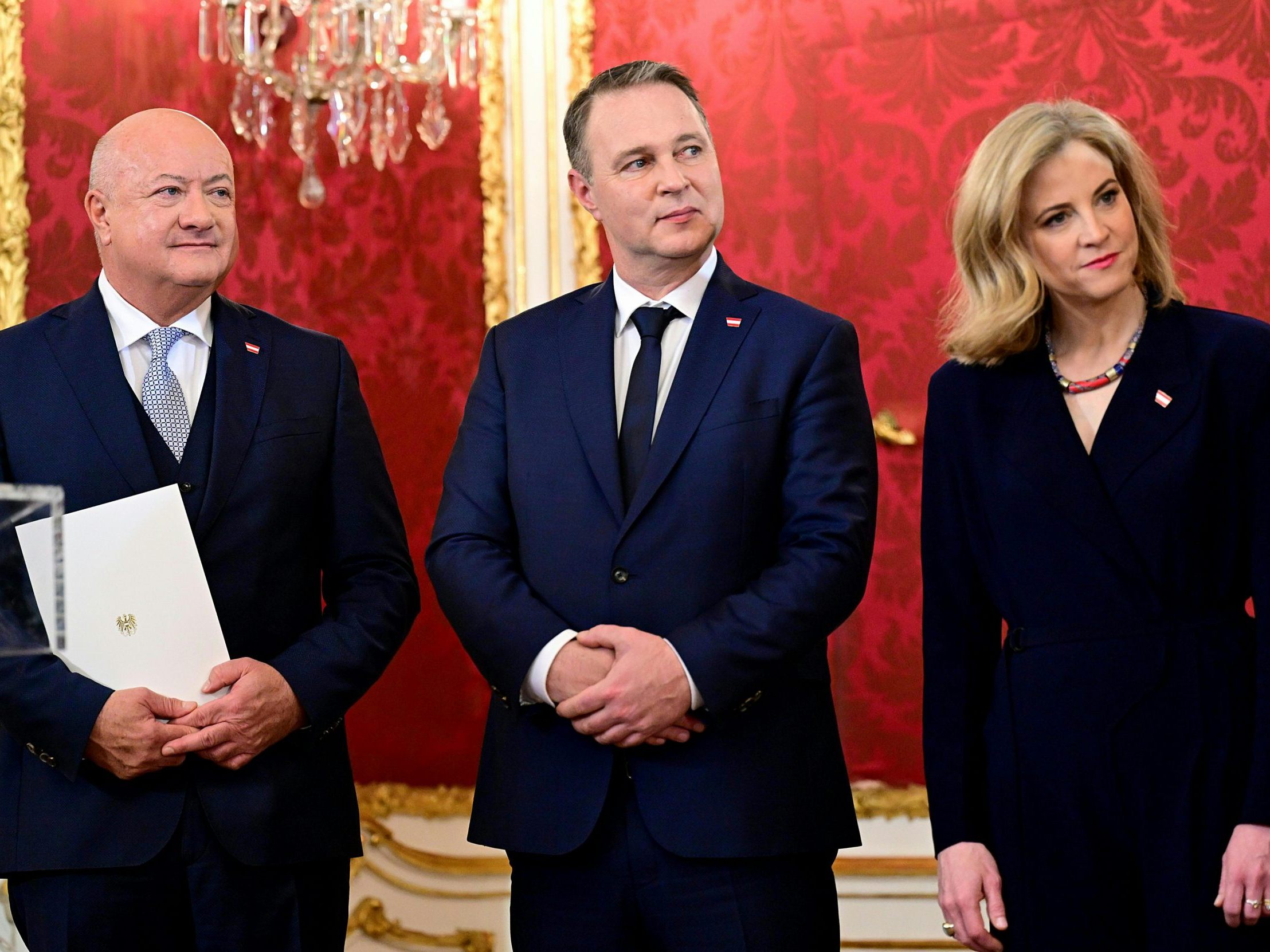New Government with Primetime Appearance on ORF

The party leaders of ÖVP, SPÖ, and NEOS made their first joint TV appearance on ORF on Monday evening after the swearing-in of the new federal government. Once again, the party leaders emphasized the compromise found in the three-party coalition. ÖVP leader and Chancellor Christian Stocker highlighted the issue of migration, among other things, where an immediate stop to family reunification was agreed upon in the government program. "Immediate means now," Stocker said.
Migration and Integration
This applies regardless of the doubts expressed as to whether such an approach is compatible with EU law. "There is a clause: If Austria is overwhelmed, then there is this possibility." As soon as Interior Minister Gerhard Karner (ÖVP) drafts the corresponding regulation, it will be implemented. "It makes no sense to pretend to the public that everything is perfectly fine, but in reality, it doesn't work," he defended the plan.
Meinl-Reisinger also pointed to the overburdening of systems, particularly the education system. Babler emphasized that it was also important to talk about "integration from day one."
The fact that the three-party coalition needed two attempts and ultimately became possible was explained by Meinl-Reisinger by saying that the "parameters" had changed. The NEOS had been the first to leave the coalition talks between ÖVP, SPÖ, and the Pink party in January. "What would not have been possible in January has now become possible." Asked whether his then-resigned predecessor Karl Nehammer had already congratulated him, Stocker said: Yes, of course. A return of the ex-chancellor was not an issue, as he had reoriented himself professionally.
FPÖ leader Herbert Kickl, who did not reach a solution in the subsequent negotiations with the ÖVP, "failed miserably" - and that was "a good thing," said the now Foreign Minister Meinl-Reisinger, also with a view to international developments. Because the "geopolitical situation has changed."
Stocker "Very Confident"
That the NEOS, but also the ÖVP, blamed the SPÖ and especially its chairman Babler for the failure of the first round of negotiations, did not affect him on the day of the swearing-in: "I look to the future. Apparently, a process was needed, and it was seen what would have been threatened with Herbert Kickl." The three parties have now "very quickly" found an agreement and a compromise, he said.
"We are forming a federal government and I am very confident that it will be a good government," said Stocker. Regarding the failed talks with the FPÖ, he stated: "Sometimes you must not skip a chapter in a story to make the story right again. Herbert Kickl would have had the chance to reinvent himself as head of government," but in the end, that was not the case.
All three party leaders of the coalition did not want to give a specific name. "Doing the right thing together" is the motto, "I have no name for it," said Stocker. "In case of doubt, we are the three-party coalition," said Meinl-Reisinger.
All three were eager to avoid any potential dividing lines in the conversation. "We have a joint program. It is neither a hundred percent SPÖ program, nor a hundred percent ÖVP program, nor a hundred percent NEOS program. But a good compromise," said Babler, for example, in response to the remark that the finance minister he selected, Markus Marterbauer, had advocated for inheritance and wealth taxes in the past. "The SPÖ has demands, but we are now in a government and that applies to the SPÖ as well."
"There Is a Compromise"
Meinl-Reisinger said that she had already arranged with Marterbauer "that we will meet and have a coffee." An agreement has been reached, and it is naturally a "struggle for a compromise." However, the government program goes "beyond the lowest common denominator."
The common ground was also emphasized on the topic of the budget. "It is important to avoid the deficit procedure," Stocker emphasized once again. "We have measures that the ÖVP would not necessarily have proposed, but there is a compromise," he said. The savings plan in the administration and ministries is "very ambitious."
All three naturally want to serve the entire legislative period. Meinl-Reisinger pointed out that in many areas, they have thought beyond the legislative period, not just in budget consolidation - for example, also in pensions. "It is the aim of our entire government to work together for five years," added Babler. And the oldest in the group also wants to serve the full five years: "We have also established working in old age, so in that sense, I adhere to the government program."
(APA/Red)
This article has been automatically translated, read the original article here.





